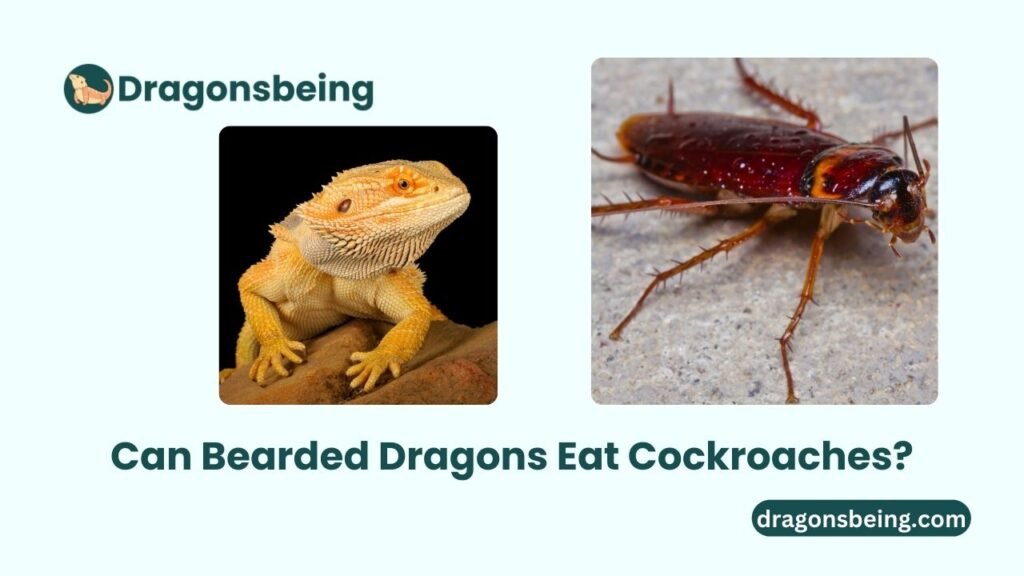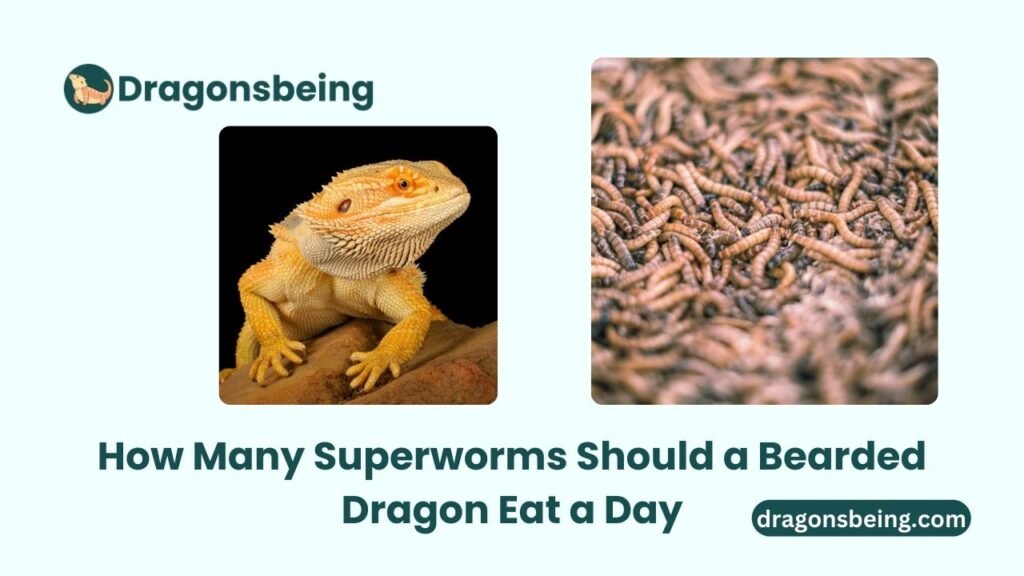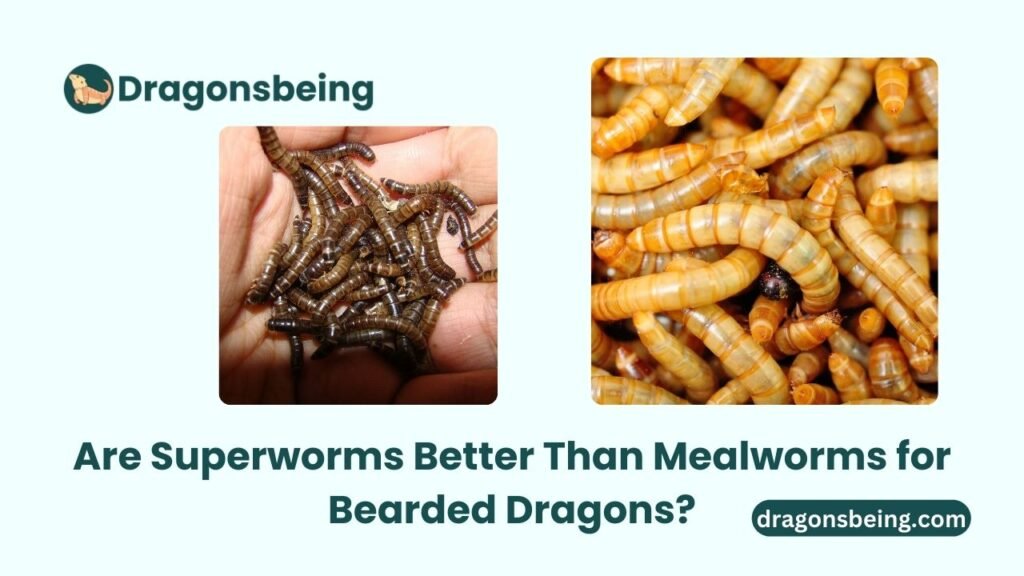Yes, bearded dragons can eat cockroaches. These insects provide excellent protein and essential nutrients for their diet.
Bearded dragons are popular pets known for their friendly nature and unique dietary needs. They thrive on a balanced diet that includes vegetables, fruits, and protein sources.
Cockroaches are a favored choice among reptile owners, as they are nutritious and easily digestible.
Unlike other insects, cockroaches are low in fat and high in protein, making them a healthy option for your bearded dragon.
It’s crucial to source cockroaches from reputable suppliers to avoid pesticides and contaminants.
Regularly incorporating cockroaches can support your pet’s growth, energy levels, and overall health. Understanding their dietary preferences will help you provide the best care for your bearded dragon.
Pros Of Feeding Cockroaches To Bearded Dragons

Feeding cockroaches to bearded dragons offers several benefits. These insects provide essential nutrients. Many pet owners prefer them for their high protein content. Let’s explore the advantages in detail.
Nutritional Value
Cockroaches are packed with nutrients vital for bearded dragons. They contain important vitamins and minerals. Here’s a breakdown of their nutritional value:
| Nutrient | Amount per 100g |
|---|---|
| Protein | 20-25g |
| Fat | 10-15g |
| Calcium | 30mg |
| Phosphorus | 100mg |
This table shows the impressive nutritional profile of cockroaches. They help support growth and overall health.
Cockroaches As A Protein Source
Cockroaches serve as a high-quality protein source. Bearded dragons need protein for muscle development and energy. Here are some key points:
- Rich in essential amino acids.
- Supports healthy growth in young dragons.
- Helps maintain energy levels in adults.
Protein is crucial for a bearded dragon’s diet. Cockroaches meet these needs effectively.
Types Of Cockroaches: Safe And Unsafe
Bearded dragons enjoy a varied diet. Some cockroaches are safe for them to eat. Others can be harmful or toxic. Understanding which species are safe is crucial. This guide outlines edible and toxic cockroach species.
Edible Species For Bearded Dragons
Bearded dragons can safely eat certain cockroach species. The following cockroaches are nutritious and safe:
- Dubia Roach: High in protein and easy to digest.
- Turkistan Roach: Similar benefits to Dubia roaches.
- Green Banana Roach: Rich in nutrients and safe.
These species provide essential vitamins and minerals. They help maintain your dragon’s health.
Toxic And Harmful Species
Some cockroach species can be toxic to bearded dragons. Avoid feeding them the following:
| Cockroach Species | Risk Level |
|---|---|
| American Cockroach | High |
| German Cockroach | Medium |
| Oriental Cockroach | Medium |
These cockroaches may carry diseases or toxins. Feeding them to your bearded dragon poses risks. Always choose safe options for their diet.
Preparing Cockroaches For Your Pet
Preparing cockroaches for your bearded dragon is crucial. Properly prepared cockroaches ensure your pet gets the right nutrition. Let’s explore how to prepare these insects effectively.
Captive Breeding Vs Wild Caught
Choosing between captive-bred and wild-caught cockroaches is important. Here are the differences:
| Aspect | Captive-Bred | Wild-Caught |
|---|---|---|
| Safety | Safer, fewer parasites | Possible parasites and diseases |
| Nutrition | Consistent diet | Varied diet, may lack nutrients |
| Availability | Readily available | Seasonal and less predictable |
| Cost | Generally more expensive | Usually cheaper |
Captive-bred cockroaches are often the best choice. They provide a safer option for your bearded dragon.
Proper Gut-loading Techniques
Gut-loading cockroaches boost their nutritional value. This process involves feeding the roaches before giving them to your pet.
Follow these steps for effective gut-loading:
- Choose nutritious foods: Use fruits, vegetables, and commercial gut-load products.
- Feed roaches: Provide food 24-48 hours before feeding them to your pet.
- Hydration: Ensure roaches have access to water.
- Monitor health: Check for signs of illness in roaches.
Gut-loading significantly enhances the nutrition your bearded dragon receives. Healthy cockroaches lead to a healthier pet.
Risks And Considerations
Bearded dragons can eat cockroaches, but risks exist. Understanding these risks is crucial. Proper care ensures your pet’s health and safety.
Parasite Transmission
Cockroaches may carry harmful parasites. These parasites can infect your bearded dragon. Here are some common parasites:
- Protozoa
- Nematodes
- Trematodes
Symptoms of parasite infections include:
- Lethargy
- Weight loss
- Diarrhea
Regular vet check-ups help identify and treat infections early.
Pesticide Contamination Concerns
Pesticides pose a serious risk. Many cockroaches live in treated areas. Residues can harm your bearded dragon.
Consider these points:
- Always source cockroaches from reputable suppliers.
- Avoid using pesticides around your pet.
- Wash any live food before feeding.
Regular monitoring helps protect your pet from harmful substances.
Feeding Guidelines
Feeding your bearded dragon properly is crucial for its health. Cockroaches can be a nutritious option. Follow these guidelines to ensure your pet gets the best diet.
Appropriate Sizes And Quantities
Select the right size cockroach for your bearded dragon. Choose one that is about the size of its head. This helps prevent choking and aids digestion.
| Age | Appropriate Size of Cockroach | Quantity per Feeding |
|---|---|---|
| Juvenile (0-6 months) | Small (1-2 cm) | 5-10 cockroaches |
| Sub-Adult (6-12 months) | Medium (2-4 cm) | 10-15 cockroaches |
| Adult (1 year+) | Large (4-6 cm) | 15-20 cockroaches |
Monitor the amount your bearded dragon eats. Adjust based on its activity level and health. Always remove uneaten cockroaches after a few hours.
Frequency Of Cockroach Feeding
Feeding frequency varies with age and diet. Young bearded dragons need more protein. Adults can eat cockroaches less often.
- Juvenile: Feed cockroaches 2-3 times a week.
- Sub-Adult: Feed cockroaches 2 times a week.
- Adult: Feed cockroaches once a week.
Balance cockroach feedings with other insects and vegetables. This ensures a varied diet. Always provide fresh water after feeding.
Incorporating Cockroaches Into A Balanced Diet
Cockroaches can be a great addition to your bearded dragon’s diet. They provide essential nutrients and protein. Mixing them with other foods creates a balanced meal. Understanding the right way to incorporate cockroaches is key.
Variety And Nutrition
Providing a variety of foods helps maintain your dragon’s health. Cockroaches offer:
- High protein content
- Essential fatty acids
- Vitamins and minerals
Feeding cockroaches can prevent dietary deficiencies. They should not be the only food source. A good mix of insects and other foods is necessary.
| Food Type | Benefits |
|---|---|
| Cockroaches | High protein, good fat content |
| Crickets | Rich in calcium |
| Mealworms | High in fat |
Supplementing With Vegetables And Fruits
Cockroaches should be part of a varied diet. Vegetables and fruits provide additional nutrients. Some great options include:
- Dark leafy greens (like kale and collard greens)
- Squash (butternut or zucchini)
- Bell peppers (for vitamins)
- Fruits (like strawberries and blueberries)
Chop vegetables and fruits into small pieces. This makes it easier for your dragon to eat. Always wash produce thoroughly. Avoid feeding toxic plants.
Combining cockroaches with these foods creates a balanced diet. This helps your bearded dragon thrive.
Monitoring Your Bearded Dragon’s Health
Keeping an eye on your bearded dragon’s health is crucial. Proper nutrition impacts their overall well-being. Cockroaches can be a great food source. Yet, it’s essential to monitor their health regularly.
Signs Of Nutritional Imbalance
Bearded dragons need a balanced diet. Signs of nutritional imbalance can show up quickly. Watch for these symptoms:
- Weight loss or gain
- Changes in appetite
- Weakness or lethargy
- Abnormal shedding
- Changes in stool consistency
These signs indicate that something may be wrong. A varied diet helps prevent these issues. Mix insects, greens, and fruits for a healthy meal.
When To Consult A Veterinarian
Consult a veterinarian if you notice any warning signs. Early detection helps prevent serious health problems. Schedule a visit if:
- Your dragon refuses food for more than a few days.
- They exhibit signs of dehydration.
- Behavior changes suddenly.
- Stomach swelling occurs.
- Problems with shedding arise.
Regular check-ups can catch potential issues early. A vet can provide tailored advice on diet and care.
Conclusion: The Verdict On Cockroaches
Cockroaches can be a nutritious food option for bearded dragons. They offer protein and essential nutrients. Yet, some concerns exist about their safety and sourcing. Understanding both sides helps in making the best choice for your pet.
Summary Of Benefits And Drawbacks
| Benefits | Drawbacks |
|---|---|
| High in Protein: Cockroaches provide essential protein. | Potential Parasites: Wild cockroaches may carry parasites. |
| Variety of Nutrients: They contain vitamins and minerals. | Allergic Reactions: Some pets may react negatively. |
| Stimulates Hunting: Crawling insects encourage natural hunting behavior. | Availability Issues: Sourcing can be challenging. |
Final Recommendations
- Opt for commercially bred cockroaches for safety.
- Limit feeding to once a week to prevent obesity.
- Monitor your bearded dragon for any allergic reactions.
- Ensure a balanced diet with vegetables and other insects.
- Consult a veterinarian for personalized advice.
Frequently Asked Questions
Can Bearded Dragons Eat Cockroaches Safely?
Yes, bearded dragons can safely eat cockroaches. They are a nutritious protein source.
What Types Of Cockroaches Are Safe?
Dubia and Madagascar hissing cockroaches are safe for bearded dragons. Avoid wild-caught varieties.
How Often Should They Eat Cockroaches?
Cockroaches can be offered 1-2 times a week. Balance their diet with vegetables and other insects.
Do Cockroaches Provide Nutritional Benefits?
Yes, cockroaches are high in protein and low in fat, making them a great addition to a bearded dragon’s diet.
Can Cockroaches Carry Diseases For Bearded Dragons?
Cockroaches can carry parasites. Ensure they are sourced from reputable suppliers to minimize risks.
How To Prepare Cockroaches For Feeding?
Feed them live or gut-loaded. Dust with calcium powder for added nutrients before serving.
Conclusion
Bearded dragons can safely eat cockroaches as part of their diet. These insects provide essential protein and nutrients. Always ensure the cockroaches are appropriately sized to prevent choking. Regularly including them in your pet’s meals can promote health and vitality.
A balanced diet leads to a happy, thriving bearded dragon.

Hi, I’m Dr. Michelle Mayers, a veterinary professional with a deep passion for animal health and well-being. Over the years, I’ve dedicated my life to caring for animals and helping pet owners better understand their furry, feathered, or scaly companions. On my blog, Dragonsbeing, I share insights, tips, and stories that aim to educate, inspire, and connect with fellow animal lovers. Join me at Dragonsbeing as we explore the fascinating world of veterinary care and celebrate the special bond between humans and animals!


